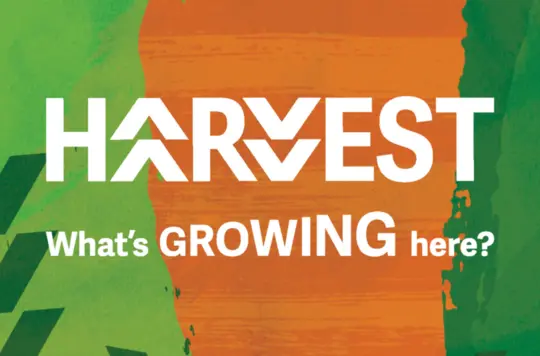22 August 2022
The Israelites' rebellion: 'Seek God and dialogue'
Bible study by Major Gareth Heward
Major Gareth Heward reminds us that rebellion against God is never without consequence.
Key text
Picture the scene: Having left behind years of slavery and maltreatment, passed through the Red Sea and crossed the Sinai Peninsula, the Israelites reach the borders of the Promised Land.
Moses appoints 12 men to explore the towns and cities ahead (see Numbers 13). Joshua and Caleb return bearing fruit and declare the Promised Land to be fertile and flowing with milk and honey. The other 10 men, however, speak of overwhelming challenges, fortified cities and giant inhabitants.
Given the conflicting reports, the Israelites decide to believe the nervous analysis from the ten rather than the fruitful evidence of the two. They then declare rebellion against Moses, plotting to appoint a new leader and return to Egypt.
This is not new behaviour from the group. When they saw the Egyptian army at their backs (see Exodus 14), when food ran short (see Exodus 16) and when water was scarce (see Exodus 17), they longed for Egypt. The prospect of difficulties ahead outweighs their memories of everything they have previously suffered.
Joshua and Caleb are in despair and try to dissuade them: ‘If the Lord is pleased with us, he will lead us... Do not rebel against the Lord’ (vv8 and 9).
Pause and reflect
- Which is a more attractive prospect – returning to the past or stepping into the future?
- Why is that?
Those who rebel against Moses are also rebelling against God, who has led this vast company by a pillar of cloud and fire (see Numbers 9). He has provided them with manna and quail (see Numbers 11) but this seems to be of little comfort. Their open contempt brings the anger of God.
Moses begins a dialogue with God, who is angry at the people’s rebellion and threatens to destroy them. Moses pleads and intercedes on their behalf, wanting to protect God’s reputation among the nations. He knows that God has every right to punish but asks for forgiveness.
Pause and reflect
- Read verse 18. Does this reflect your understanding of God?
- How are love and forgiveness compatible with punishment?
Today’s reader might gladly accept God’s love and forgiveness but balk at the thought of punishment. The teaching of Jesus offers forgiveness for sins. The doctrine of the atonement demonstrates that the cross is effectual in this.
However, rebellion against God is never without consequence. An individual who wilfully acts against God might find the consequences of their choices echoing in their own lives and in those of succeeding generations.
Pause and reflect
- What choices have you made that affect others?
The verdict is delivered. Everyone counted in the census recorded in Numbers 1 – all men of fighting age, of 20 years and above – will die in the wilderness. Each of the 40 days the spies explored the Promised Land will result in a year of wandering (see v34). The spies who failed to recognise that God would have overcome the obstacles that they reported are immediately struck down and die of plague (see v37).
When Moses explains this, the Israelites recognise their sin. They try to put things right according to their own thinking. Sadly, the response is to once again ignore God. They attempt an assault on the ‘land the Lord promised’ (v40) but God is not with them in this because he has already outlined his judgement. Their attempt fails.
Hopefully, few readers of this study will be in open rebellion against God. Some, though, might be questioning the direction set by their leaders. Others might be leaders who are seeking to discern the will of God for themselves and those in their care. Still others might be dealing with the regretful consequences of choices they have made.
In each of these situations, we are encouraged to seek God and dialogue with one another, remembering: ‘The Lord is slow to anger, abounding in love and forgiving sin and rebellion. Yet he does not leave the guilty unpunished’ (v18).
Psalm 103:17 develops this teaching and includes this reminder: ‘But from everlasting to everlasting the Lord’s love is with those who fear him.’
As songwriter Eliza Read put it:
I heard of a Saviour whose love was so great
That he laid down his life on the tree;
The thorns they were pierced on his beautiful brow
To pardon a rebel like me.
(SASB 465)
Pause and reflect
- How eager are you to accept – and act on – God’s promises?
Bible study by

Major Gareth Heward
Corps Officer, Gloucester
Discover more

It's your choice: God's strength or your own?
Captain Tom Dunham challenges us to move forward in faith.

Harvest
Support your local Salvation Army through your Harvest offering.

The Big Connection
Fundraise for our social work, your corps or a Salvation Army project that's close to your heart.

Devotions
Reflections, prayers and Bible studies to help you go deeper with God.
